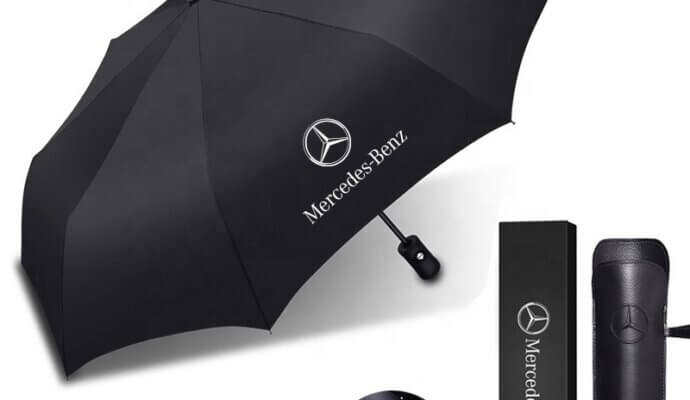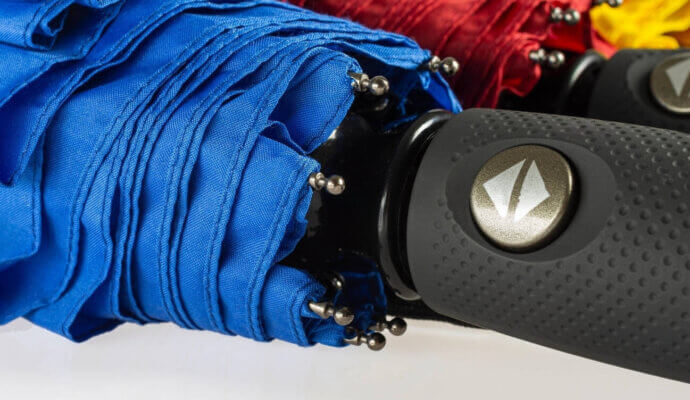Umbrellas have transformed from mere rain protection tools to versatile accessories that reflect personal style and promote businesses. In a market flooded with options, the quest for a reliable umbrella supplier becomes a strategic undertaking. This guide is designed to equip you with the knowledge and tools needed to effectively navigate the umbrella supplier landscape, ensuring you make informed decisions that align with your quality, reliability, and ethical requirements.

Table of Contents:
1. Understanding the Importance of a Reliable Supplier
The Impact of Supplier Reliability on Business Success:
A reliable supplier is more than just a source of products. They are partners in your business journey. The reliability of your supplier directly impacts your ability to meet customer demands, maintain consistent product quality, and uphold your brand reputation.
The Role of Quality in Sourcing Umbrellas:
Quality umbrellas are not just about aesthetics; they are about functionality and durability. Sourcing umbrellas that meet or exceed quality expectations is pivotal for delivering customer satisfaction and building long-term trust.
2. Initial Research: Laying the Foundation
Defining Your Requirements:
Clearly define your requirements, including the type of umbrellas, quantity, customization needs, and any specific quality standards. This clarity will guide your search and ensure a smooth supplier selection process.
Researching Potential Suppliers:
Start by creating a list of potential suppliers based on online directories, trade platforms, and industry recommendations. This initial research will give you a pool of candidates to evaluate.
Online Directories and Trade Platforms:
Utilize online resources such as search engines, B2B directories, trade shows, and online marketplaces to identify umbrella suppliers. These platforms offer valuable insights into their product range, reputation, and contact information.
3. Assessing Supplier Reputation
Customer Reviews and Testimonials:
Dive into customer reviews and testimonials to understand the experiences of past clients. Positive reviews and satisfied customers are indicative of a supplier’s reliability and commitment to customer satisfaction.
Industry Recognition and Awards:
Suppliers with industry recognition and awards demonstrate excellence and a commitment to quality. Look for suppliers who have been recognized for their contributions to the umbrella manufacturing sector.
4. Quality Control and Certifications
Materials Used in Umbrella Production:
Inquire about the materials the supplier uses for umbrella production. Quality umbrellas are made from durable fabrics, sturdy frames, and ergonomic handles that ensure longevity and performance.
ISO Certifications and Quality Standards:
ISO certifications, such as ISO 9001 for quality management systems, indicate a supplier’s commitment to adhering to strict quality control processes. These certifications assure consistent quality in their products.
Compliance with Safety Regulations:
Ensure that the supplier’s umbrellas comply with safety regulations and standards, especially if they are meant for specific purposes like UV protection or wind resistance.
5. Requesting and Evaluating Samples
Importance of Sample Requests:
Sample requests are essential to physically evaluate the quality and craftsmanship of the umbrellas. They provide firsthand experience of the supplier’s product offerings.
Criteria for Evaluating Sample Umbrellas:
Consider factors such as fabric durability, frame sturdiness, ease of use, and overall aesthetic appeal when evaluating sample umbrellas.
Analyzing Build Quality, Materials, and Craftsmanship:
Thoroughly examine the build quality and materials used in the sample umbrellas. Assess the stitching, frame construction, and any additional features like automatic opening mechanisms.
6. Customization Capabilities
Exploring Customization Options:
If customization is important, inquire about the supplier’s ability to personalize umbrellas with your branding, colors, and designs.
Personalized Branding and Design:
Discuss the options for adding your logo, artwork, or other branding elements to the umbrellas. A reliable supplier should offer a range of customization possibilities.
Assessing Supplier’s Design Expertise:
Request examples of their previous customization work to gauge their design capabilities and ensure they can bring your vision to life.
7. Effective Communication
Language Proficiency and Communication Channels:
Effective communication is crucial for a successful partnership. Ensure that the supplier’s team is proficient in your preferred language.
Responsiveness and Availability:
Timely responses to your inquiries demonstrate the supplier’s commitment to customer service and open communication.
Importance of Clear and Prompt Communication:
Clear communication avoids misunderstandings and ensures that both parties are on the same page regarding requirements, timelines, and expectations.
8. Production Capacity and Lead Times
Evaluating Supplier’s Manufacturing Capability:
Discuss the supplier’s production capacity and their ability to meet your order volume requirements. A reliable supplier should have the resources to fulfill your needs.
Balancing Capacity with Lead Time Requirements:
Assess whether the supplier’s production capacity aligns with your required lead times. Ensure that they can deliver within your desired timeframe.
9. Ethical and Sustainable Practices
- Ethical Sourcing of Materials:
Inquire about the supplier’s commitment to sourcing materials responsibly, which includes fair trade practices and environmentally friendly sourcing.
- Fair Labor Practices and Social Responsibility:
A reliable supplier should uphold fair labor practices and contribute positively to the communities they operate.
Environmental Sustainability:
Evaluate the supplier’s environmental practices, such as waste management, energy efficiency, and use of sustainable materials.
10. Pricing Transparency and Value
- Understanding Pricing Structures:
Gain a clear understanding of the supplier’s pricing structure. This includes the cost of materials, production, customization, and any additional services.
- Considering Value Over Low Cost:
While cost is a factor, prioritize value over the lowest price. High-quality materials and excellent craftsmanship ensure that you get what you pay for.
- Negotiating and Bulk Order Discounts:
If applicable, discuss bulk order discounts and negotiate terms that align with your budget and requirements.
11. Visit the Supplier, if Possible
- In-Person Factory Tours and Assessments:
If feasible, visiting the supplier’s facilities can provide insights into their manufacturing processes, working conditions, and overall operation.
- Building Stronger Relationships through Visits:
In-person visits not only enhance transparency but also help build stronger, more collaborative relationships with your supplier.
12. Establishing a Long-Term Partnership
- Evaluating Compatibility and Mutual Goals:
A reliable supplier should align with your business values, goals, and aspirations for growth.
- Navigating Contractual Agreements:
Clear contractual agreements protect both parties’ interests and outline expectations, responsibilities, and terms.
- Continuous Feedback and Improvement:
Maintain an open channel for feedback. A reliable supplier values your input and works collaboratively to improve products and processes.
Conclusion:
Selecting a reliable umbrella supplier is a multifaceted process that necessitates thorough research, critical evaluation, and effective communication. The consequences of choosing an unreliable supplier can be detrimental to your business or personal satisfaction. However, by following the steps outlined in this guide, you can significantly increase your chances of finding a supplier that meets your quality, customization, and ethical requirements.
Remember that a reliable supplier isn’t just a transactional partner. They become an integral part of your supply chain, influencing your products’ quality and, by extension, your brand’s reputation. Invest time, effort, and resources in your supplier selection process, and you’ll reap the benefits of a strong and mutually beneficial partnership that can withstand the tests of time, weather, and business challenges.




2 thoughts on “Blog”
Can the way an umbrella is packaged really make a significant impact on the success of a brand? How can innovative packaging strategies differentiate a brand in a competitive market?
Yes, the way an umbrella is packaged can certainly elevate the brand and make it stand out. There are many different methods of packaging, and the approach you choose depends on how you want to convey the brand’s identity and values. For example, sleek and minimalist packaging could communicate a modern, high-end feel, while eco-friendly packaging might appeal to environmentally conscious consumers. Ultimately, packaging is a powerful tool to express the brand’s story, make a memorable impression, and create a unique customer experience.